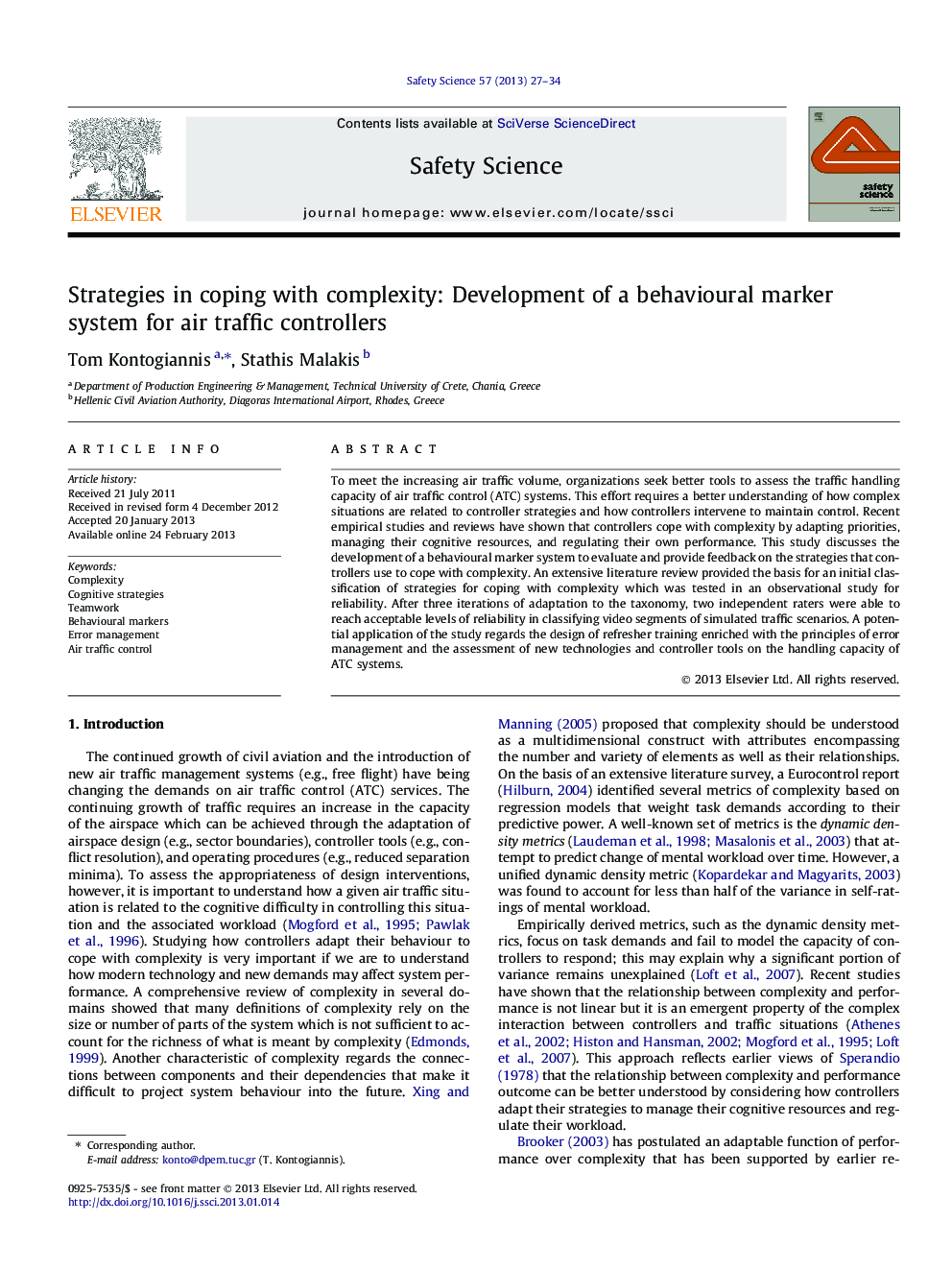| Article ID | Journal | Published Year | Pages | File Type |
|---|---|---|---|---|
| 589533 | Safety Science | 2013 | 8 Pages |
To meet the increasing air traffic volume, organizations seek better tools to assess the traffic handling capacity of air traffic control (ATC) systems. This effort requires a better understanding of how complex situations are related to controller strategies and how controllers intervene to maintain control. Recent empirical studies and reviews have shown that controllers cope with complexity by adapting priorities, managing their cognitive resources, and regulating their own performance. This study discusses the development of a behavioural marker system to evaluate and provide feedback on the strategies that controllers use to cope with complexity. An extensive literature review provided the basis for an initial classification of strategies for coping with complexity which was tested in an observational study for reliability. After three iterations of adaptation to the taxonomy, two independent raters were able to reach acceptable levels of reliability in classifying video segments of simulated traffic scenarios. A potential application of the study regards the design of refresher training enriched with the principles of error management and the assessment of new technologies and controller tools on the handling capacity of ATC systems.
► A review provided the basis for a taxonomy of strategies for coping with complexity in ATC. ► Strategies were cast as behavioural markers that were tested for reliability by two raters in an observational study. ► Controllers coped with complexity by adapting priorities and managing their workload. ► Potential applications include error management training and new ATC technologies.
